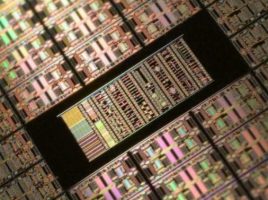TSMC’s Sky-High Costs For 2nm Chips And Tight Production Capacity Scared Apple Into Dropping Them From iPhone 17 Pro Models
Jan 2, 2025

Apple’s custom chips have come a long way, and the performance of the A-series is considered to be one of the best in the industry. The current A18 and A18 Pro chips are built on TSMC’s 3nm process, but there was news that the SoC will utilize the 2nm node. While it did not pan out the way we had hoped for, following rumors claimed that Apple planned to use the technology in its iPhone 17 Pro models. It is now being reported that the company moved away from TSMC’s 2nm chips due to their higher-than-expected costs and limited production capacity for the iPhone 17 Pro models.
Apple decided to delay the use of TSMC’s 2nm chips for the iPhone 17 Pro models due to higher manufacturing costs and lower production capacity
According to media reports (via MyDrivers), Apple has postponed using TSMC’s 2nm processor chips for the iPhone 17 Pro and iPhone 17 Pro Max, with the commercial launch now set for 2026. The delays come after concerns over the high production cost of the 2nm chips from TSMC and the limited manufacturing capacity. While the supplier has already begun trial production of the chips, the results are not promising and would potentially require time to deliver a finished product, according to reports.
The trial production of the 2nm chips was conducted in the Baoshan plant in Hsinchu, Taiwan, and based on reports, the yields are not on par with the standard the company has set. To be precise, the yield rate is 60 percent which means that almost 40 percent of the chips produced are defective. With each wafer costing a whopping $30,000, the production cost appears to be impractical for Apple to integrate the 2nm chips in the forthcoming iPhone 17 Pro and iPhone 17 Pro Max.
Due to these concerns, the company has decided to push back the launch of its 2nm chips by almost a year, and it is now expected to arrive with the release of the iPhone 18 Pro models in 2026. This also means that the iPhone 17 lineup will continue using TSMC’s 3nm chips. Note that Apple already utilizes TSMC’s 3nm chips in its current iPhone 16 lineup, and while there will be improvements in the A19 Pro chips, the 2nm chips in 2026 will deliver massive performance gains with greater efficiency.
Despite production challenges, it was noted by TSMC at the 2024 IEDM conference that the 2nm chips will feature up to 15 percent more transistors than the 3nm chips, leading to a 15 percent performance boost while consuming the same amount of power. Apple delayed TSMC’s 2nm chips due to the fact that the technology is too costly and difficult to produce at the scale needed for millions of iPhones, and it would be a wise decision if it wanted to keep the prices of the handsets at bay. We will share more details on the subject, so be sure to stick around.

